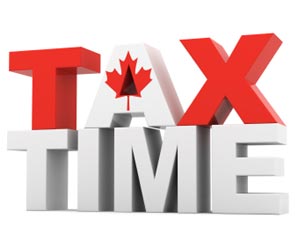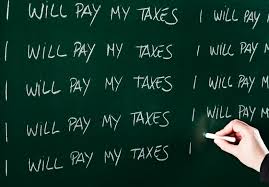 How do I pay my taxes? Where do I pay my taxes? When are my taxes due? These questions come up ALL the time. I know, no one likes to pay taxes (including me) however they are a necessary evil for all Canadians to benefit from the beautiful place we call home.
How do I pay my taxes? Where do I pay my taxes? When are my taxes due? These questions come up ALL the time. I know, no one likes to pay taxes (including me) however they are a necessary evil for all Canadians to benefit from the beautiful place we call home.
So, what do you do if you owe taxes? How and where do you pay? And when are they do?
How And Where To Pay Taxes
In an effort to make it easier on individuals and businesses, there are many options to choose from.
- ONLINE BANKING
- Individuals
- Business Taxes (GST/Payroll & Corporate Tax)
- DIRECT THROUGH CRA
- Debit Card – Login to your CRA My Payment (or CRA My Business Account for GST, Payroll & Corporate Tax) and pay with your debit card.
- Visa Debit – Only select banks are offering this service including ATB Financial, Scotiabank, RBC Royal Bank, TD Canada Trust, BMO, Servus Credit Union and CIBC.
- PRE-AUTHORIZED DEBIT - Using your CRA My Account (or CRA My Business Account for GST, Payroll & Corporate Tax), you can set it up so CRA takes a predetermined amount from your bank account to pay tax on one or more dates. Also great for those required to make quarterly instalments.
- THIRD-PARTY SERVICE PROVIDERS (and some even accept credit cards)
- CANADA POST – you will need a customized QR code and services fees will apply.
- AT YOUR BANK - Who really goes to their bank anymore?!?! Remember, if you go to the bank, you will need your pre-printed remittance voucher from CRA which can be downloaded from your MyAccount or MyBusinessAccount but if you have access to that, you might as well use option 2 above.
- MAIL A CHEQUE – Does anyone use snail mail anymore?! Choose the tax centre closest to you and remember to include your SIN (or business number) and tax year for which payment is for.

Tax Due Dates
Tax payment due dates can be quite confusing as there can be many depending on the type of tax you are paying and whether for the past or current year.
- PERSONAL TAXES (individuals) are ALWAYS due April 30 unless it falls on a weekend, in which case it is due the first business day following which is usually the Monday.
- CORPORATE TAXES are generally due 3 months after your fiscal year end although there are some corporations that are due 2 months after. i.e. Tax year ends January 31, your corporate taxes are due April 30.
- GST payments are due based on how often you are required to file your return.
- PAYROLL AND SOURCE DEDUCTIONS are generally paid monthly however some small businesses have the option to pay quarterly (CRA will advise annually if eligible which includes always filing on time and when the withholdings are less than $1,000/month). For monthly payments, they are due the 15th of the month following your payroll. i.e. Payroll for March would be due April 15.
- INSTALMENTS are tax payments made in advance of the tax due date when your prior year taxes (individuals, GST, and Corporate Tax) are more than $3,000. 5 W’S Of Tax Instalments has more details on that for you.

Although I said we all must pay tax, I didn’t say, you should pay more than you are supposed to. Take advantage of every credit, deduction and benefit you are entitled to. The government puts them in place for a reason so don’t pay more than you should.
And remember, always seek the advice of a Professional CPA.
***This blog is for information only and not to be used as tax advice or planning without first seeking professional advice. Information is subject to change without notice.
